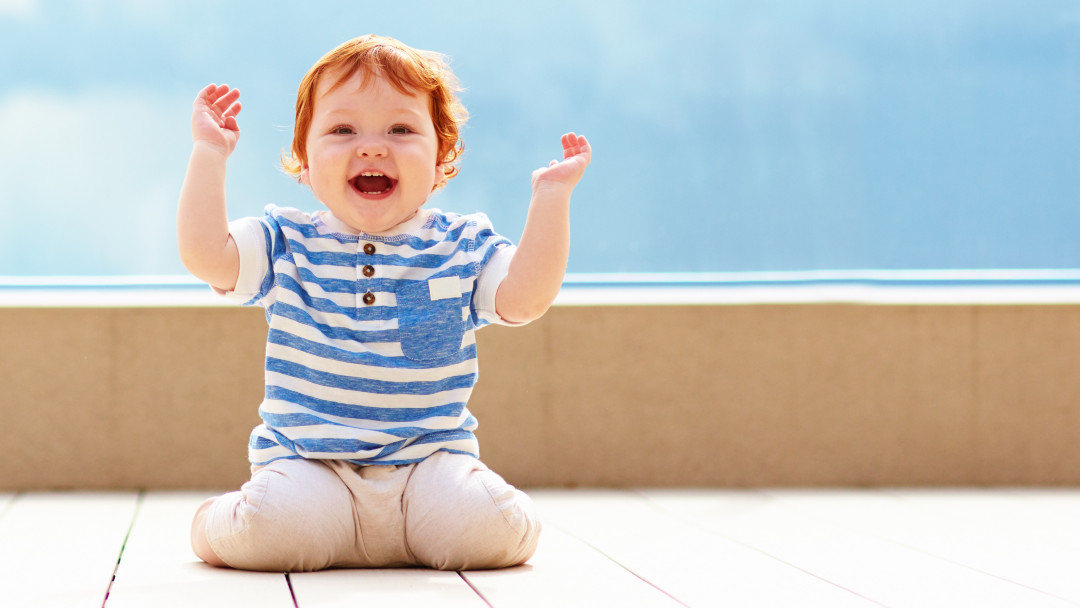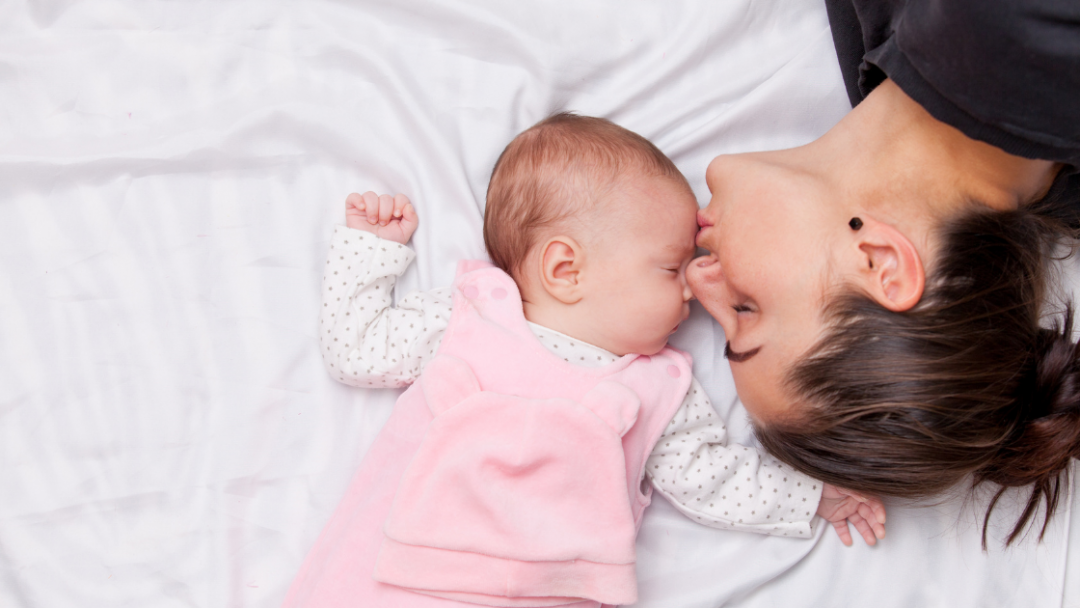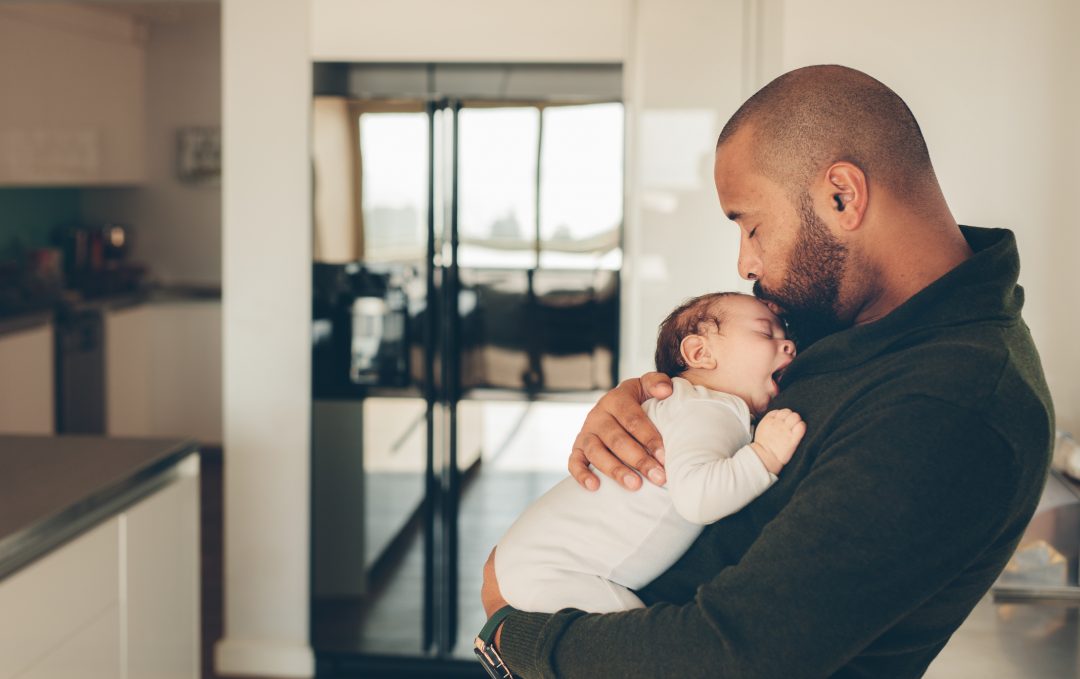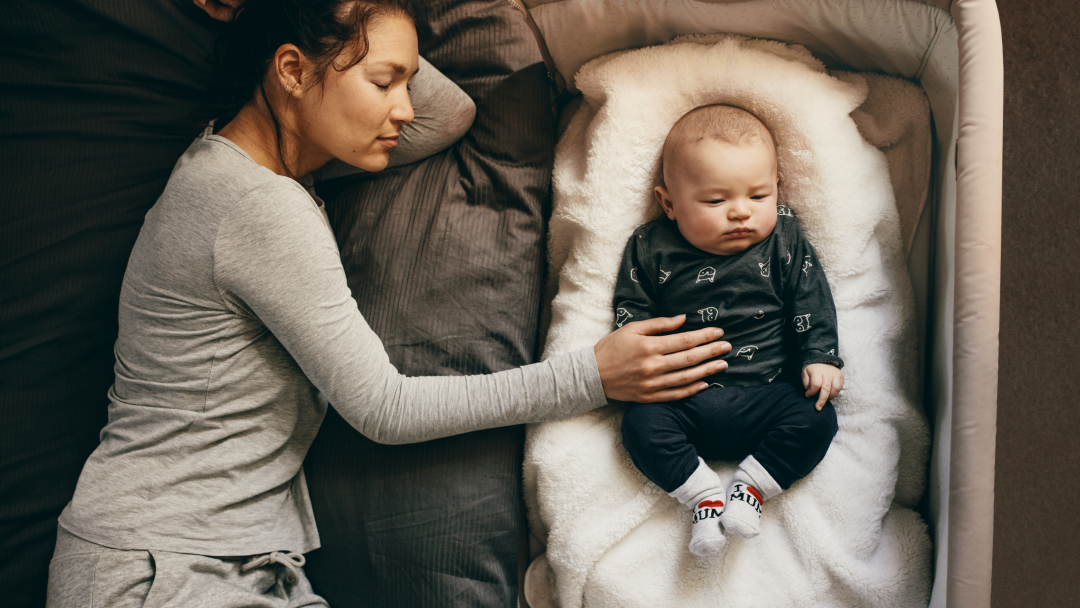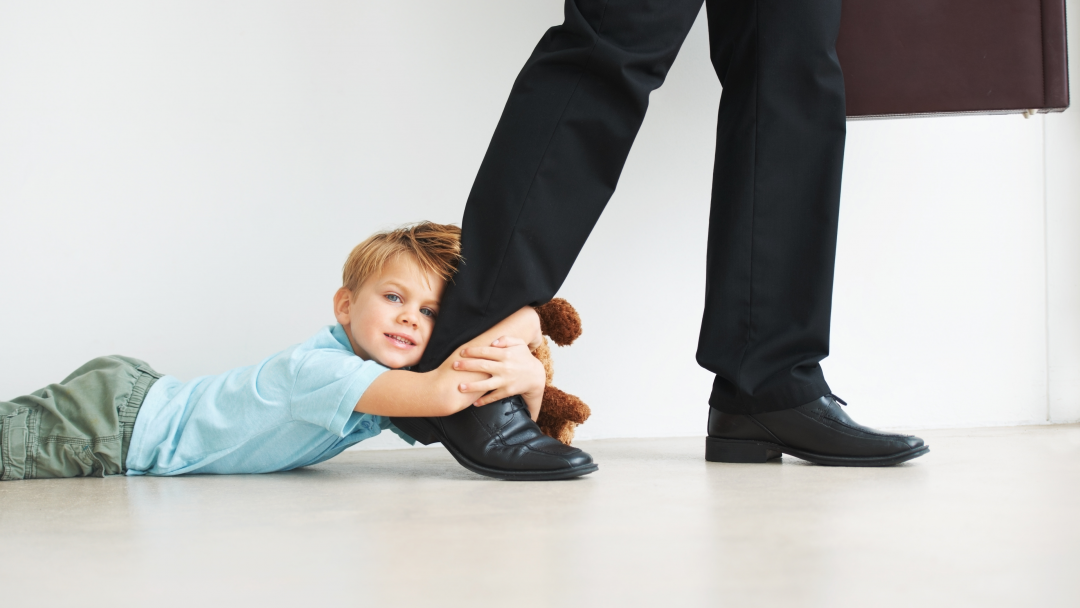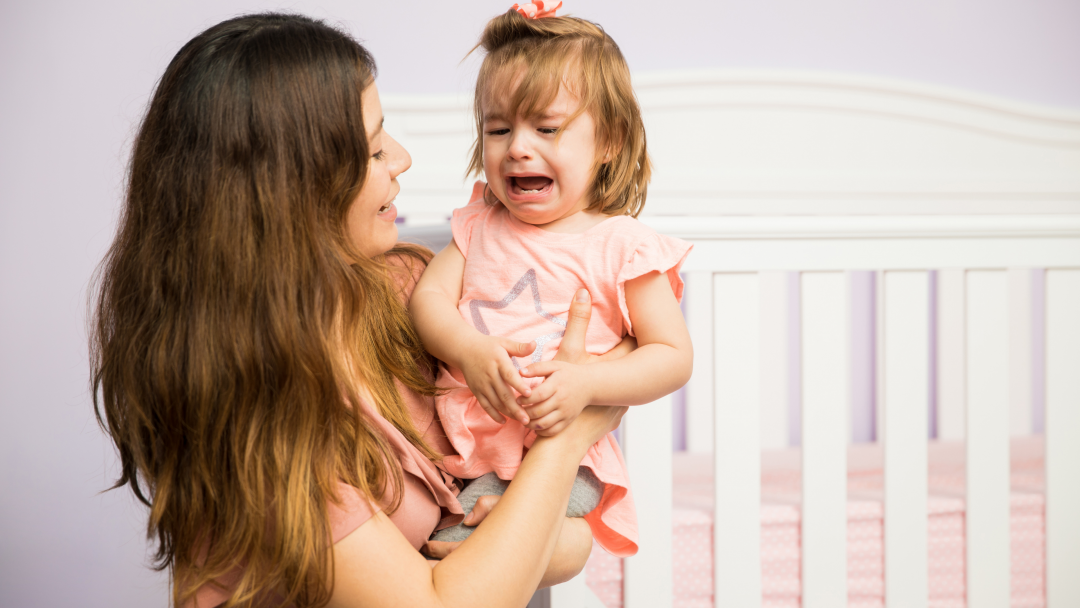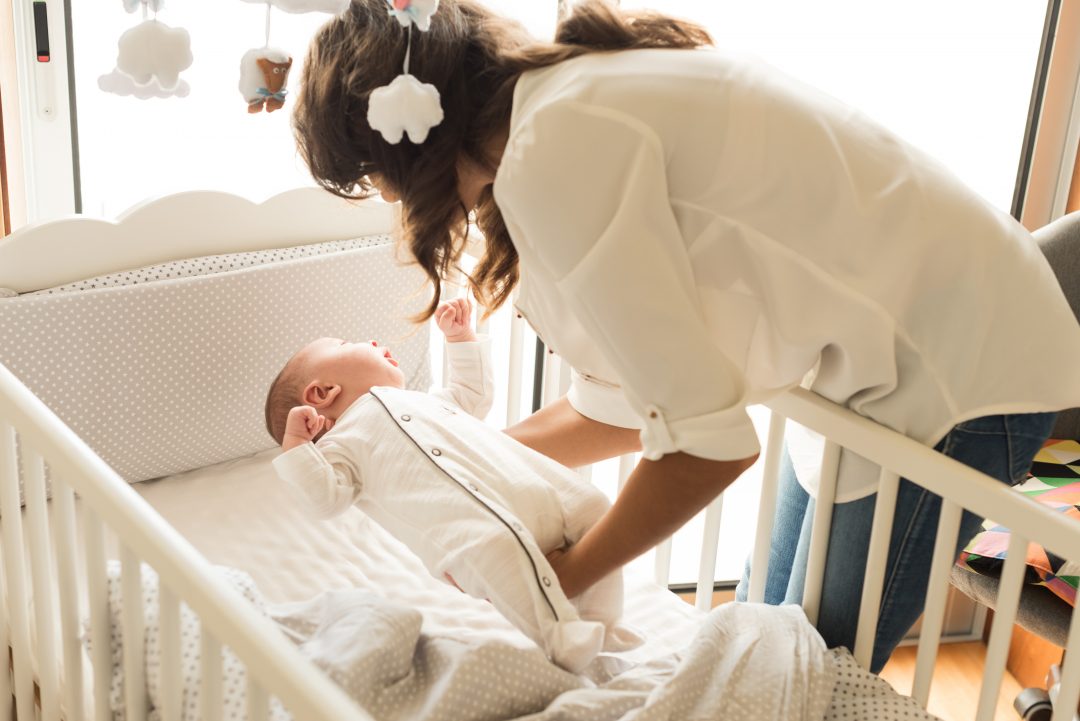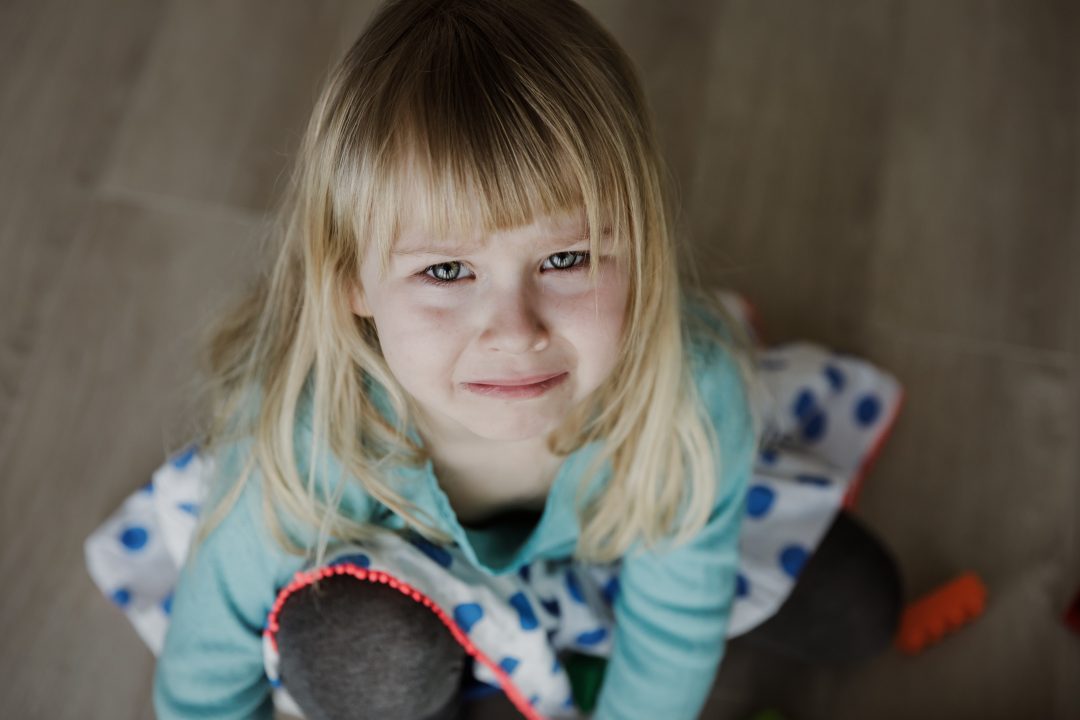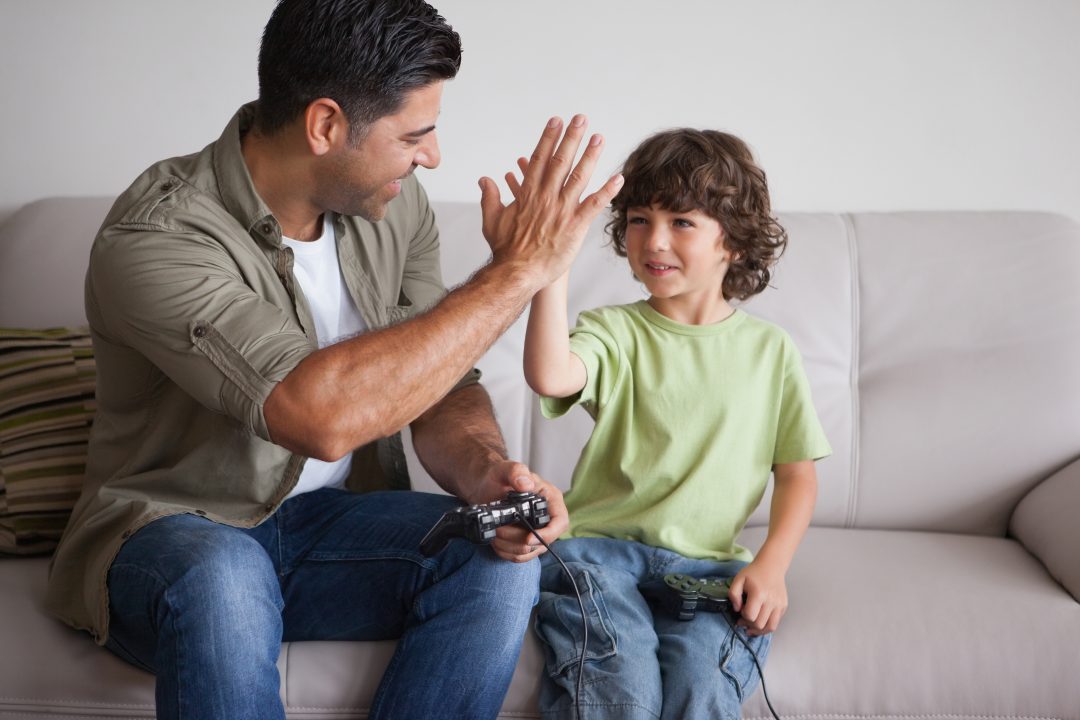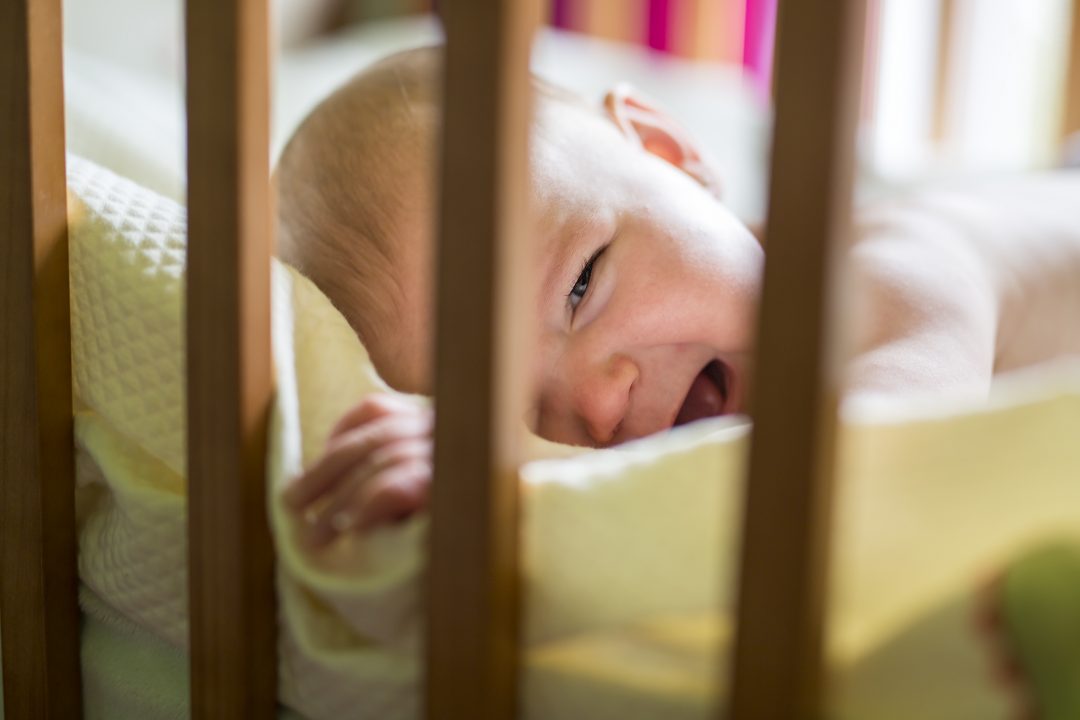The Power of Bonding: Nurturing Early Infant Development
Categories: Baby, Developmental Milestones
In his chapter for our ParentTV book, Parents, this is the one thing you need to know, Nathan Wallis, neuroscience and child development educator, talked about the importance of the first 1000 days of a baby’s life. ‘You just can’t overestimate it,’ Nathan says.
Your outcomes aren’t just determined by your genes, they’re also shaped by your brain’s interaction with the environment it’s exposed to in the first 1000 days of your life. The basis for a lot of your capabilities as a human are established in that time, as the brain uses it to gather data and determine what you will need to survive and thrive in that environment.
Nathan Wallis
Wow, no pressure…
So, how do you make sure your baby is exposed to optimal conditions for that critical brain development?
Well, there are a few answers, but the most important one is the dyad, Nathan explains in one of his new videos for ParentTV. ‘A central thing to understand about what a baby needs in the first 18 months of their life is the dyad relationship,’ Nathan says.
This is a two-way relationship. It doesn’t have to be the biological mother who the baby establishes this relationship with, either. The baby definitely recognises its mother, but there isn’t a biological program in the baby that says, “I need my mother to be my primary caregiver.” Instead, there’s a biological program that says, “I need to find the most responsive person in my environment.”
Nathan Wallis
This is the person who gives them attention, who interacts with them and nurtures an inclusive partnership with them. It’s with this person that the dyad attachment is formed, and, ‘The higher the quality of this initial relationship, generally the better the outcomes and the brain development of the baby are,’ Nathan says.
Why is the dyad relationship so important?
The dyad relationship is important because attachment is our survival mechanism as humans, Nathan explains. ‘We spend those first six months of our lives convincing someone to fall madly, deeply in love with us. Most of us then have someone who, at the end of those six months, is willing to die to protect us. That’s the most powerful and successful survival method there is.’ If you think about how vulnerable human babies are, enlisting the support of someone who loves them to ensure they can survive is a pretty clever strategy!
What about the other caregivers?
Don’t worry, grandparents and the other parent or parents get a look-in, too. ‘It’s clear in the research that when the baby has a dyad and secondary relationships in addition to this, it’s hugely beneficial to them,’ Nathan says. ‘There’s research that suggests they have better social skills and may even do better academically if they have these secondary caregiver relationships, but it’s only when they’re in addition to the dyad, not instead of the dyad,’ Nathan says.
What about babies who ONLY want the caregiver they have the dyad with?
Ah. Velcro babies, we know them well! Separation anxiety is a very real thing with a lot of children and babies and it can be hard for both them and their caregivers. ‘It can feel really overwhelming when your baby won’t go to anyone but you, but it’s important to remember that it will pass,’ ParentTV expert, bestselling author and IBC Lactation Consultant, Pinky McKay. ‘Our fourth child would scream whenever I handed her to her father,’ Pinky says. ‘She ended up being our most independent child, moving out of home first and travelling overseas alone first. She was clingy until she was about four, though.’
When you have a baby who doesn’t like to be without you, all you can do is help them to feel secure and carefully navigate opportunities for them to get used to other people, Pinky suggests. ‘It might be best if someone else takes the baby outside for a walk while you stay at home, or gradually sits with you and talks to the baby before moving to holding the baby.’ Short, infrequent separations with people they know will be the most manageable for these babies. They will gradually learn that other people can be trusted and can meet their needs as well as their number one.
Securely attached babies can still experience separation anxiety
It’s important for parents to understand that their baby is not anxious because they’ve done something wrong in their care, points out ParentTV expert, Maggie Dent. Some children are just more sensitive to this. ‘Parents, it’s not your fault. It’s actually biologically wired into children to feel anxious when they’re being separated from their number one caregiver.’ This anxiety helps to protect them in the instance they’re taken from their caregiver by someone unsafe, Maggie says, so it’s there for a reason. It doesn’t mean your baby has an insecure attachment. On the contrary, it’s because they feel so safe and secure with you that separation is distressing for them.
Maggie agrees with Pinky that short times with another caregiver in their circle are the best way to ease them into any sort of separation from you, so they learn that you may leave, but you will always come back soon. ‘We need to build new neural pathways for kids who experience separation anxiety so they understand that you are leaving them, but it’s not forever,’ Maggie says.
While sometimes being in this dyad relationship with your baby can be a little challenging, it’s also pretty special, a big old privilege and the most important thing you can do for your baby, their brain development and their future. Check out the videos in this post to learn more about this topic, and remember, the ParentTV book, Parents, this is the one thing you need to know is on sale NOW at Kmart, BigW and other book retailers. Pick yourself up a copy and get a big juicy dose of parenting wisdom today!


